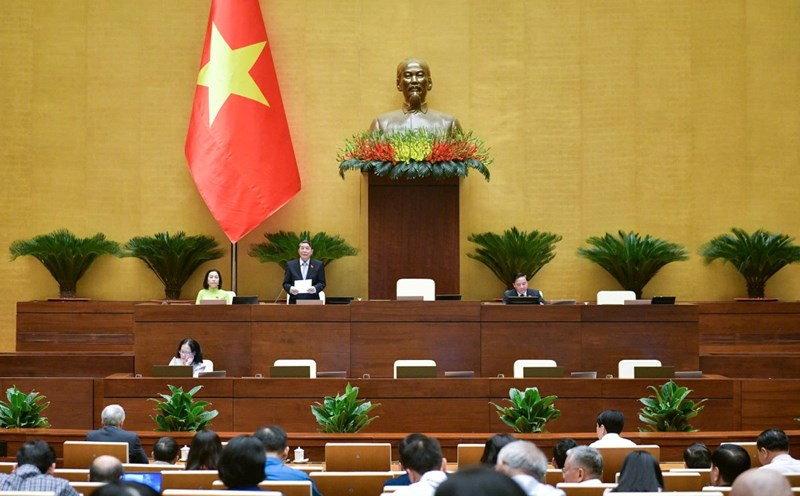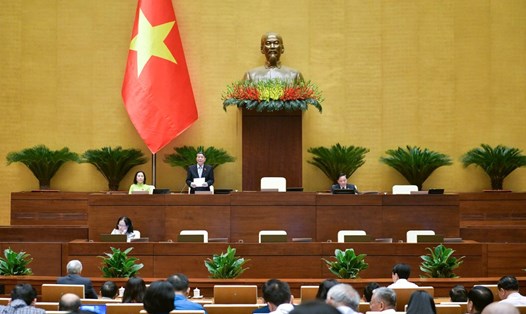On the morning of November 23, the National Assembly discussed in groups the draft Law on Management and Investment of State Capital in Enterprises (amended).
Delegate Hoang Van Cuong (Hanoi Delegation) emphasized that Law No. 69/2014/QH13 (Law on Management and Use of State Capital Invested in Production and Business at Enterprises) provides very strict management regulations.
However, this has led to state-owned enterprises almost losing the initiative in deciding on production and business activities from their own capital. This also affects the production results of state-owned enterprises.
Citing the increase in charter capital for Vietcombank, the delegate pointed out that the capital increase money was left over from Vietcombank's annual profitable business. However, in 2019 and 2020, when profits were low, only under 10,000 billion VND, Vietcombank had the right to increase its capital without having to ask for it.
In the following years, if there is a lot of profit, if you want to increase capital, you have to submit it to the National Assembly for consideration. Delegates think that this is very unreasonable, businesses are not given authority, leading to domestic businesses being rigid, ineffective, and not as dynamic as private businesses.
According to the delegate, despite such strict regulations, the second situation still occurs, which is the loss of assets and state capital invested in enterprises, which is not small.
The Hanoi delegation cited the recent collapse of a number of corporations and general companies. When they collapsed, we took measures but did not rectify them, and did not know in advance. Afterwards, assigning responsibility was not easy.
"It can be seen that the regulations in Law No. 69 are strict but the responsibilities are not clear. This is something that needs to be changed in this revised law," said the delegate.
According to the delegate, there is currently confusion between state management, management by owner representatives and business management. These are three different entities but are confused, making the assignment of responsibility ineffective, and it is not known why.
"It is not known where the loss is coming from, and it is also impossible to determine. If there are no clear regulations, we cannot delegate authority or assign responsibility," the delegate said.
Regarding the scope of regulation, the delegate mentioned that the current draft law is including enterprises with 50% or more state capital. If only this object is included in the law, it will make this law a law on capital management at state-owned enterprises. Because with 50% or more state capital, it is called a state-owned enterprise.
Thus, for enterprises with less than 50% capital, the state does not manage. The delegate emphasized that this is not allowed because when the state invests capital, it must manage it. Therefore, there must be sanctions in this law on how to manage the money of enterprises with less than 50%, it must be included in the law.
Or for enterprises that are 100% state-owned but then invest in FDI enterprises or subsidiaries, the draft law does not stipulate this. The money invested in these subsidiaries is also state money and must be managed.
However, the delegate noted that each mechanism and management principle for a certain amount of money must be different. It must be implemented according to the viewpoint and ideology that wherever the state money flows, it must be managed.
The delegate also agreed that state capital invested in enterprises becomes the capital and assets of the enterprise. When the capital comes from the budget, it is state capital and must be managed according to the Law on Public Investment and the Law on Budget. When state money is invested in an enterprise, it must become the capital of the enterprise and let them decide, the state cannot decide for them.
From there, the delegate proposed to add that when that capital becomes the asset of the enterprise, the State becomes the owner of shares corresponding to the capital contribution ratio, not the owner of capital.











